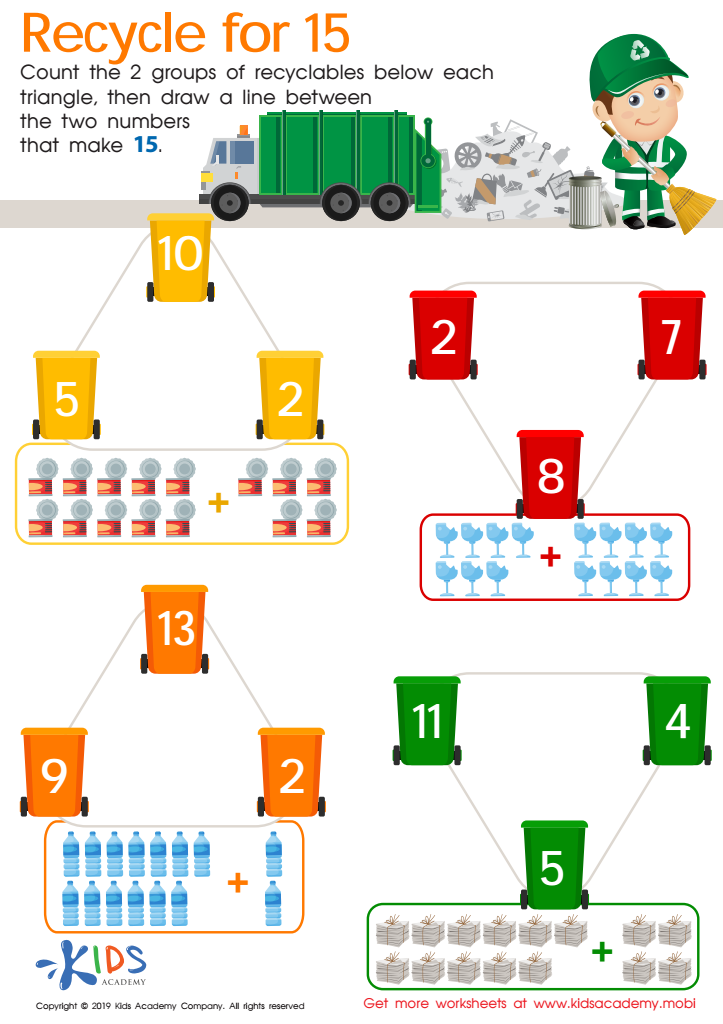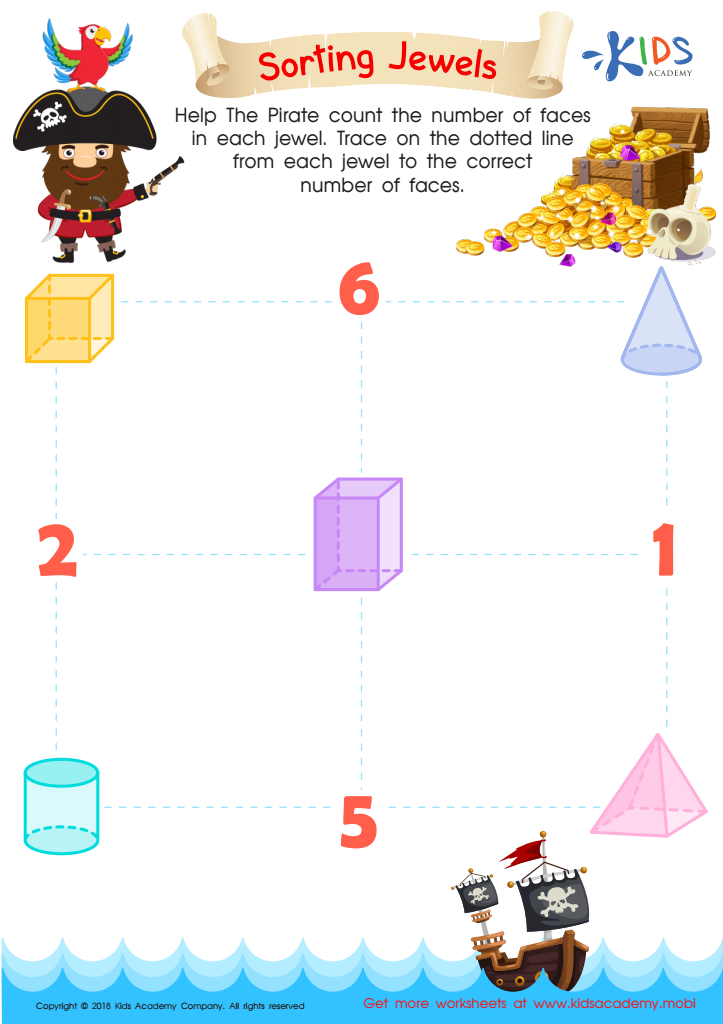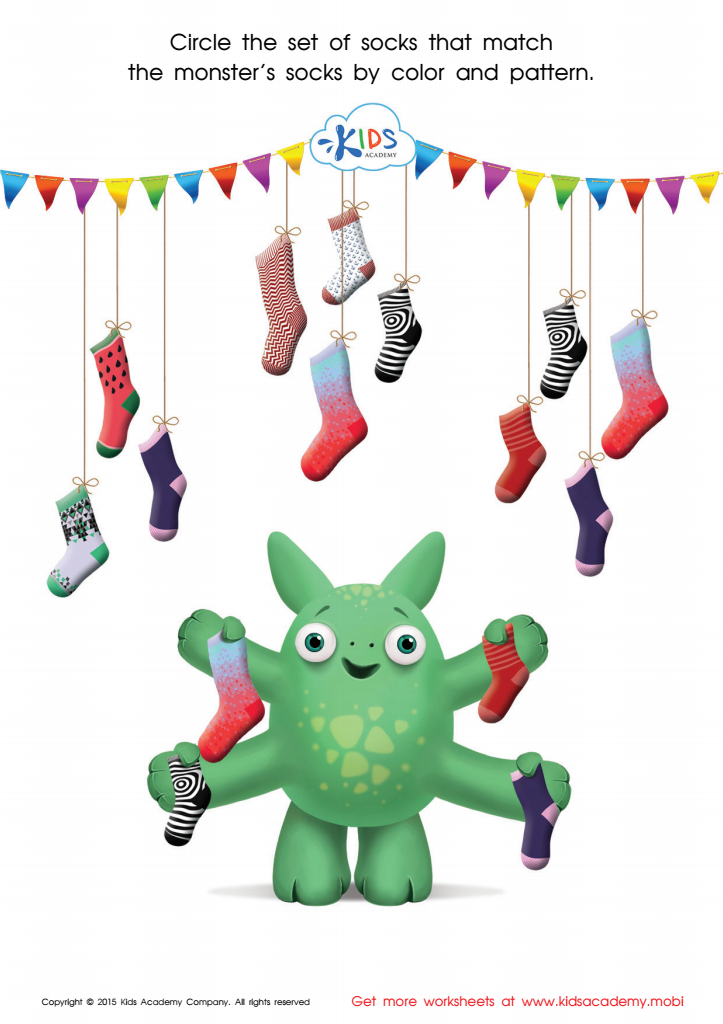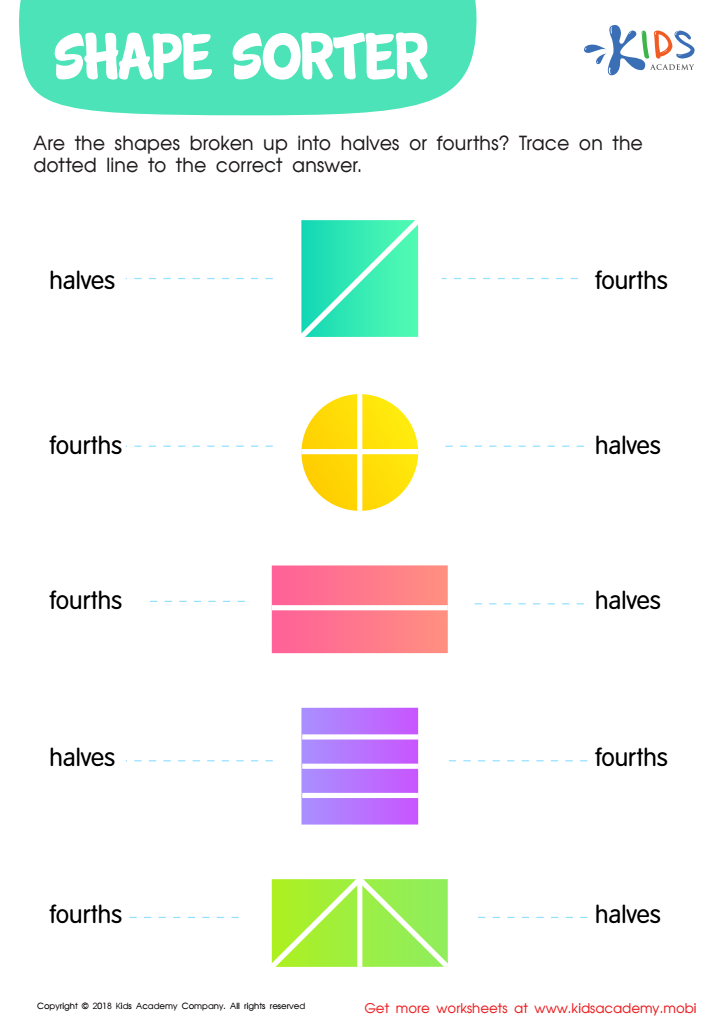Sorting skills Extra Challenge Math Worksheets for Ages 4-8
4 filtered results
-
From - To
Boost your child's cognitive development with our "Sorting Skills Extra Challenge Math Worksheets" designed for ages 4-8! These engaging activities encourage young learners to sharpen their critical thinking and organizational skills through fun and challenging tasks. Our expertly crafted worksheets not only cover basic sorting concepts but also introduce advanced categorization techniques tailored to develop problem-solving abilities. Ideal for early learners, these extra challenge worksheets promote hands-on learning, help in understanding patterns, and make math enjoyable. Whether at home or in the classroom, give your kids the advantage they need to excel with our comprehensive sorting skills supplements!


Recycle for 15 Worksheet


Sorting Jewels Worksheet


Sort the Monster's Socks Worksheet


Shape Sorter Worksheet
Sorting skills are foundational cognitive abilities that play a pivotal role in early childhood development and later academic success. For children ages 4-8, engaging in sorting exercises can provide fundamental benefits that both parents and teachers should prioritize.
Firstly, sorting encourages critical thinking and problem-solving abilities. By differentiating and categorizing objects based on various attributes such as shape, size, color, or pattern, children learn to observe details, make decisions, and understand relationships between items. This nurtures logical thinking, an essential skill for mathematics and other academic subjects.
Secondly, sorting activities enhance vocabulary and language development. As children describe their sorting choices, they practice using descriptive language and develop communication skills. Terms like "bigger/smaller" or "different/same" become part of their regular vocabulary, benefiting overall language proficiency.
Furthermore, these activities support the development of fine motor skills. Handling and manipulating objects for sorting exercises aids hand-eye coordination and dexterity.
Moreover, sorting lays the groundwork for number sense. Grouping objects helps children grasp concepts of counting, addition, subtraction, and set theory, which are core components of early mathematics curricula.
In conclusion, prioritizing sorting skills through extra challenge math programs for young children can immensely benefit critical thinking, language development, fine motor skills, and foundational math abilities. Parents and teachers should actively incorporate sorting activities into educational routines to foster a holistic developmental environment.
 Assign to My Students
Assign to My Students



















